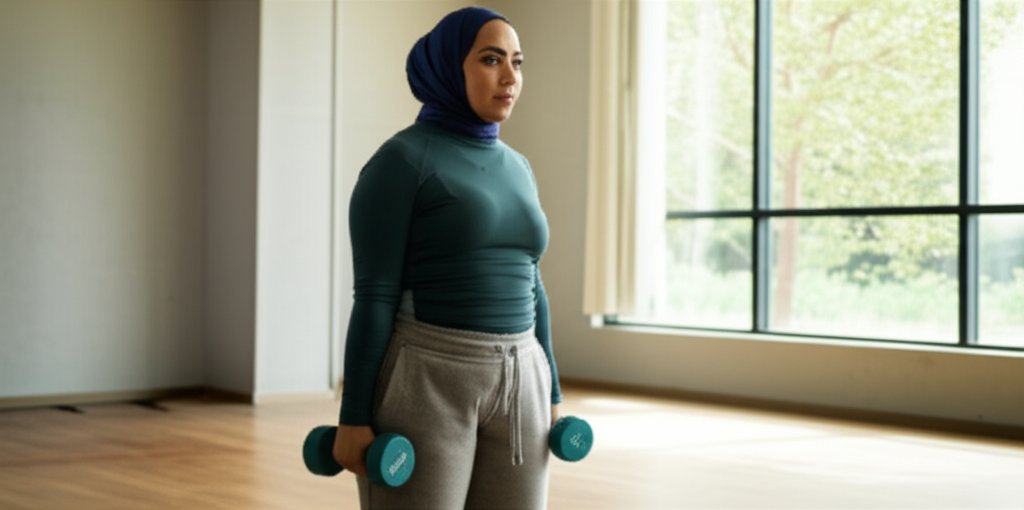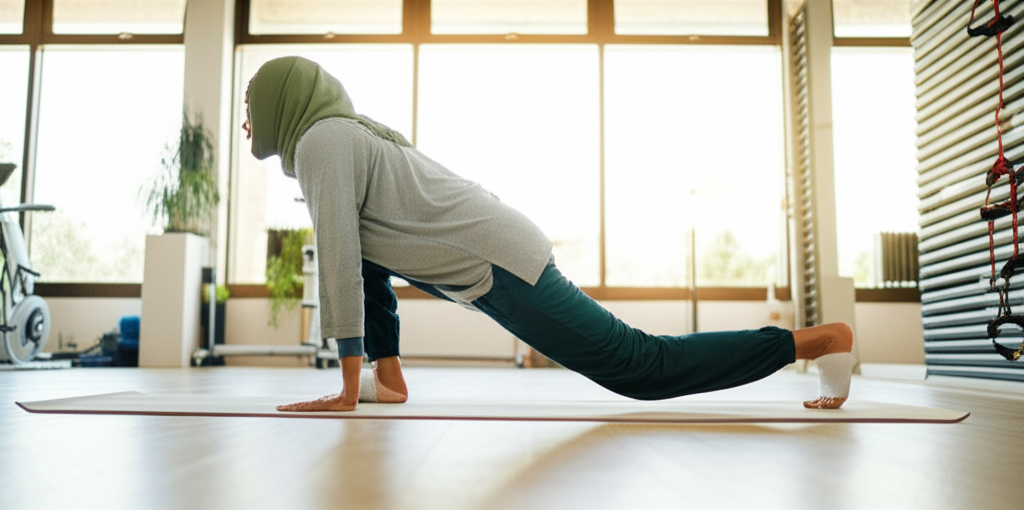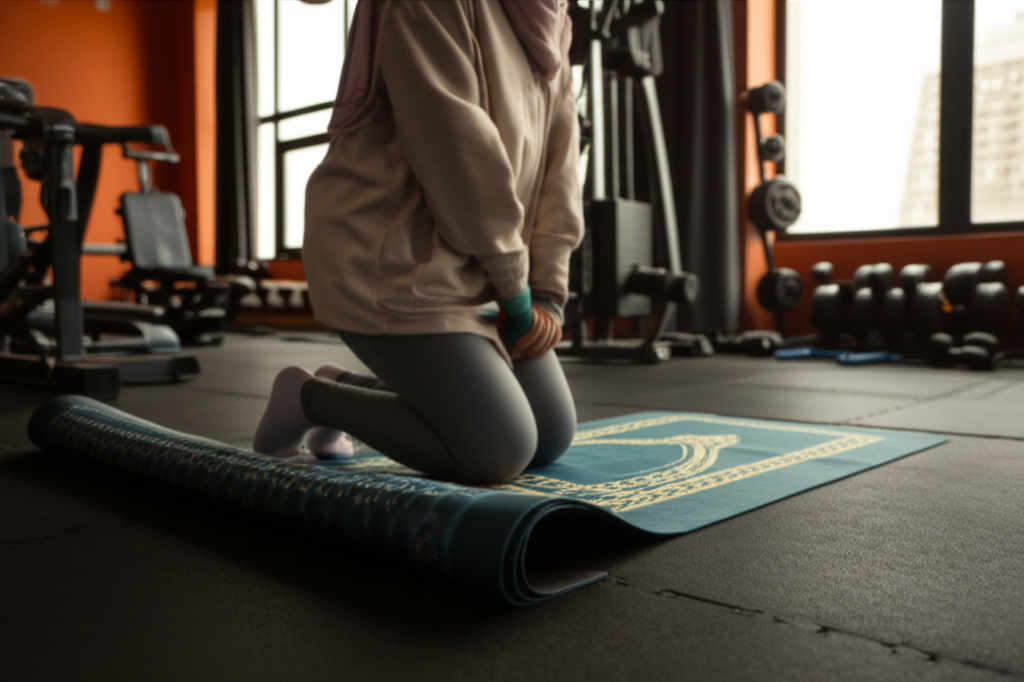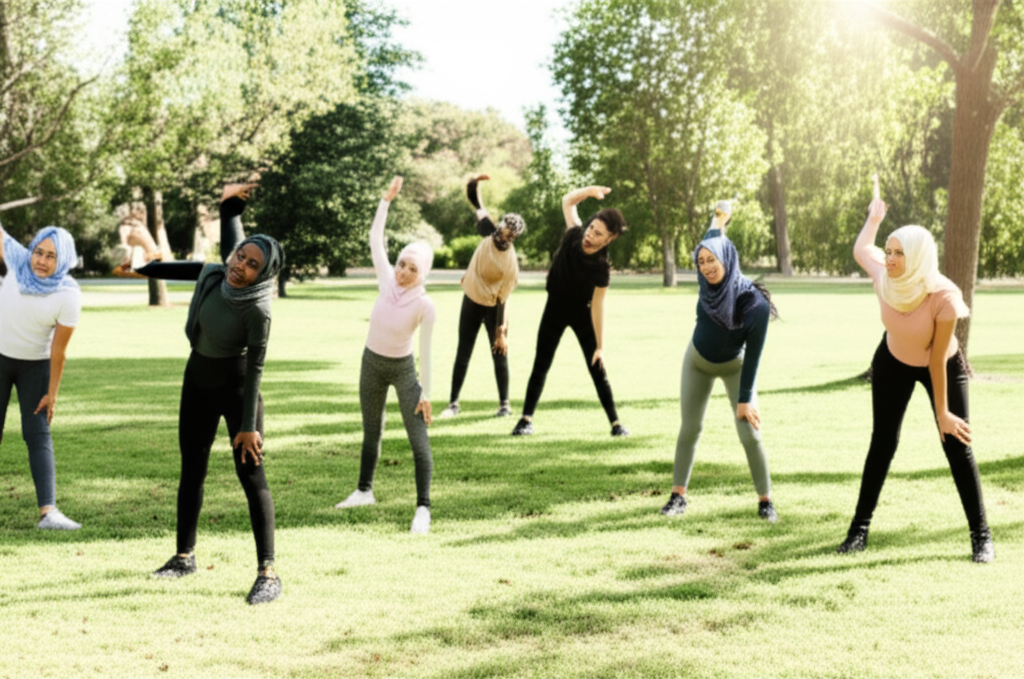Okay, let's dive into the fascinating world of Halal fitness! It's all about finding that sweet spot where your commitment to a healthy lifestyle meets the principles of Islam. We're not talking about compromising your faith for fitness; we're talking about integrating the two for a holistic sense of well-being. Let's explore some key aspects together.
1. Modesty in Motion: Rethinking Workout Attire
One of the first considerations is workout attire. Forget the skin-tight leggings and revealing tops! Opt for loose-fitting, breathable clothing that covers the 'awrah (parts of the body that should be covered). Think long sleeves, modest pants, and a comfortable hijab, if applicable. The goal is to feel comfortable and confident while adhering to Islamic guidelines.
2. Time Management: Fitting Fitness into Prayer Times
Juggling workouts and prayer times can seem tricky, but it's entirely doable! Schedule your workouts around your Salah. You could do a quick workout session between prayers or dedicate a longer time slot during the day when it doesn't interfere with your religious obligations. Prioritizing your prayers and then planning your workouts shows respect for both your faith and your body.
3. Halal Supplements: Fueling Your Body the Right Way
Navigating the world of supplements can be confusing, especially when you're looking for Halal options. Always check the ingredients to ensure they are free from pork derivatives, alcohol, and other prohibited substances. Look for certifications from reputable Halal certification bodies. Remember, a balanced diet should always be the foundation of your fitness journey, with supplements used only when necessary.
4. Mindful Nutrition: Eating Clean, Staying Halal
What you put into your body is crucial. Focus on consuming Halal-certified meats, plenty of fruits and vegetables, whole grains, and healthy fats. Avoid processed foods and sugary drinks, which offer little nutritional value. Nourishing your body with wholesome, Halal ingredients is a form of worship in itself, demonstrating gratitude for the blessings Allah has provided.
5. Body Image: Cultivating Self-Acceptance and Gratitude
It's easy to get caught up in unrealistic body image ideals, especially with social media pressures. Instead, focus on cultivating a healthy relationship with your body. Appreciate the strength and functionality Allah has granted you. Set realistic fitness goals based on overall health and well-being, not just aesthetics.
6. Avoiding Gender Mixing: Respecting Boundaries in Fitness Environments
In many Islamic cultures, it's important to avoid unnecessary interaction between genders outside of close family. Consider working out at home, in female-only gyms (if available), or during off-peak hours when gyms are less crowded. If you do train in a mixed-gender environment, maintain respectful boundaries and focus on your own workout.
7. Intentions Matter: Niyyah (Intention) in Fitness
Before you even start your workout, make your Niyyah (intention). Remind yourself that you're exercising to maintain your health, which is a blessing from Allah. A strong and healthy body allows you to better fulfill your religious obligations and contribute positively to society. With the right intention, your workout becomes an act of worship.
8. Seeking Knowledge: Consulting with Halal-Conscious Professionals
If you're unsure about certain aspects of Halal fitness, don't hesitate to seek guidance from knowledgeable individuals. This could include a Muslim healthcare professional, a Halal-certified nutritionist, or even a religious scholar who understands the importance of physical well-being. Education is key to making informed decisions and staying true to your faith and fitness goals.











